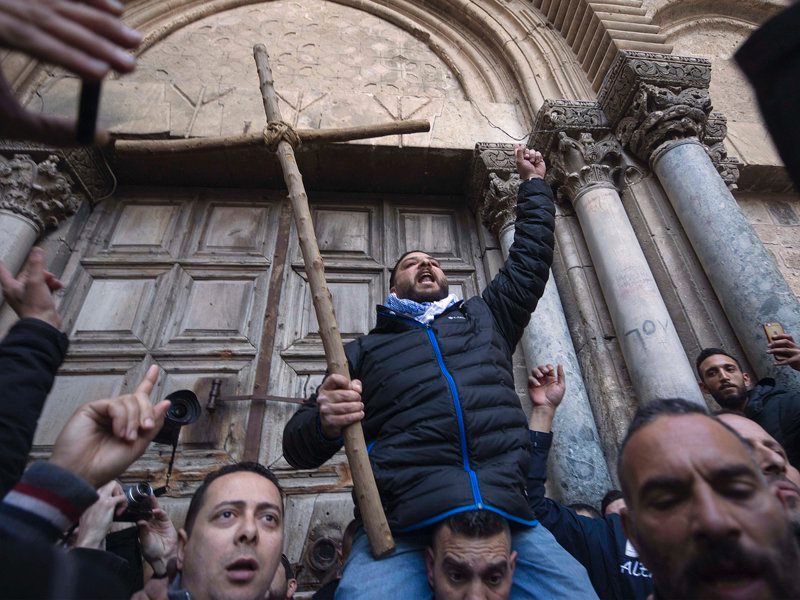An ethereal city graced with sunlight so bright it turns the white stone skyline gold at sunset, Jerusalem is also an earthbound city whose teachers must be paid and whose garbage must be collected.
Finding a balance between the Holy City’s earthly needs, amid ongoing financial woes, and the needs of the numerous institutions that form its rich religious heritage is no easy task.
That balance was upset last month, leaders of the Holy Land’s Christian churches say, when they received property tax bills totaling millions of dollars, applicable to all church properties that are not actual houses of worship.
The levying of those bills was spearheaded by Mayor Nir Barkat, who wants to shore up the city’s small tax base.
“It is absurd for Jerusalem residents to fund municipal services for the churches…on their own, and for the municipality to be prevented from collecting enormous sums that could significantly improve the city’s development and services,” Mr Barkat said.
But the move was unprecedented: For five centuries, successive rulers of the Holy Land – including Israel – have exempted all church holdings from property taxes.
When Israel was established in 1948, the government worried that allowing all religion-linked properties to be tax-free would be financially untenable, but continued the church exemption as a courtesy.
Christian officials, angered by the recent tax bills and the belief that Israel is trying to change the religious status quo in the contested city, decided to shutter the Church of the Holy Sepulchre for three days in protest.
Read the article by Michele Chabin in Sight Magazine.

